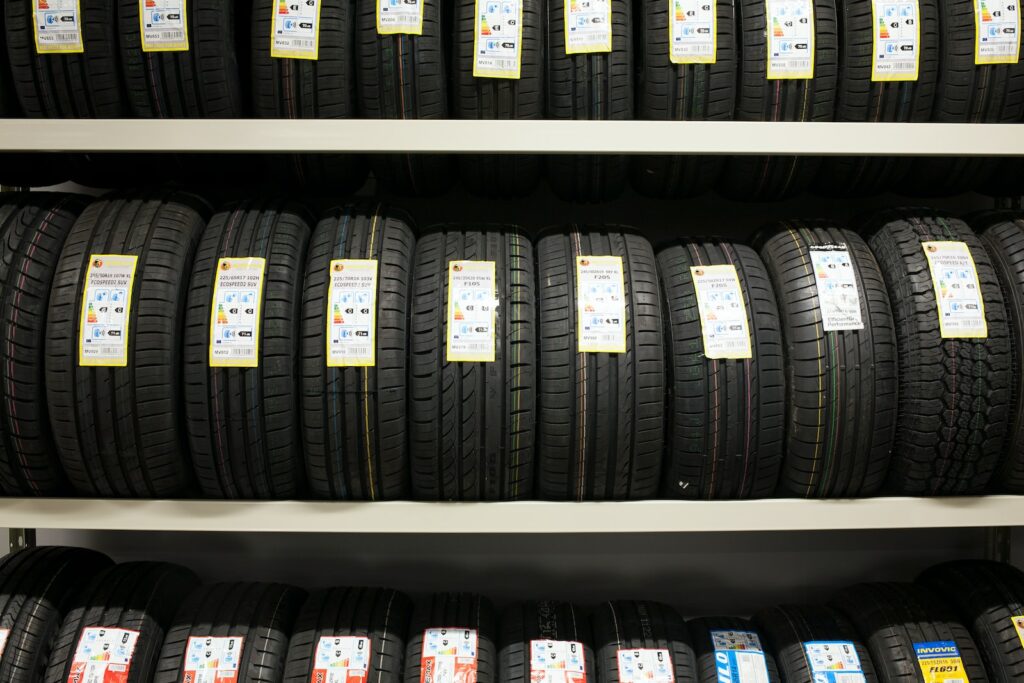Choosing the right car tires is an important decision that can affect the safety, performance, and longevity of your vehicle. In this guide, we will explore the different types of tires available, their intended use and benefits, and how to choose the right ones for your vehicle.
Purpose and Importance of Car Tires
Car tires are one of the most crucial components of a vehicle. They are the only point of contact between the car and the road, and their ability to grip the road surface is essential for maintaining control of the car and ensuring a smooth and safe ride. The quality of your tires can also impact your vehicle’s performance, fuel efficiency, and handling, as well as the wear and tear on other parts of the car. In addition, in certain area and weather condition, specific type of tire is need to ensure safety and proper performance of your car.
Different Types of Car Tires
There are several types of car tires available on the market, each with its own unique set of characteristics and intended use. The most common types are:
All-Season Tires: These tires are designed to provide a balance of performance and versatility, and are suitable for use in a variety of weather conditions, including dry, wet, and light snow. They are the most popular type of tire, and are a great choice for most drivers and vehicles.
Summer Tires:
These tires are designed to provide maximum performance and grip in warm and dry weather conditions. They have a softer rubber compound that allows for better traction and handling, but are not recommended for use in cold or wet weather.
Winter Tires:
These tires are designed for use in cold and snowy weather conditions, and feature a specialized rubber compound that remains flexible in low temperatures to provide better traction and control on snow and ice. They are also designed with deeper treads to help clear snow and slush from the tire surface.
Performance Tires:
These tires are designed for sports cars and high-performance vehicles, and provide maximum grip and handling capabilities. They have a soft rubber compound that allows for better traction and handling, but have a shorter lifespan than other types of tires.
Touring Tires:
These tires are designed for long-distance driving, comfort, and fuel efficiency. They have a firmer rubber compound that provides a smooth and quiet ride, but may have less grip than other types of tires.
Benefits of Choosing the Right Tires
Choosing the right tires for your vehicle can offer several benefits, including:
- Improved safety: Wearing tires that are designed for the specific weather and road conditions you’ll be driving in can greatly enhance safety, by providing better traction, control, and braking capabilities.
- Enhanced performance: Selecting tires that are designed for your vehicle’s performance level can help improve fuel efficiency and handling.
- Increased longevity: Choosing tires that are appropriate for your driving conditions and vehicle type can help extend the life of your tires, as well as other components of your car.
How to Choose the Right Tires
When choosing new tires for your vehicle, it is important to consider the following factors:
- Vehicle type: Different types of vehicles have different tire requirements. For example, a sports car will require performance tires, while a minivan will require touring tires.
- Driving conditions: Consider the types of weather and road conditions you will be driving in most often. If you live in an area with cold winters, you will want to consider winter tires.
- Tread depth: The depth of the tread on your tires plays a crucial role in the safety and performance of your vehicle. As the tread depth decreases, the tires lose their ability to grip the road surface, which can lead to a loss of control, increased stopping distance, and a higher risk of hydroplaning. To ensure maximum safety and performance, it is important to replace your tires when the tread depth reaches a minimum of 2/32 of an inch.
- Speed rating: Tires are also rated for their maximum speed capabilities. It is important to choose tires with a speed rating that is appropriate for your vehicle’s maximum speed capability.
- Size and load capacity: Tires come in a variety of sizes and with different load capacities. It is important to select tires that are the correct size for your vehicle and that are rated to carry the weight of your vehicle and passengers.
Precautions
When choosing new tires for your vehicle, it is important to take into account the vehicle’s intended use, the driving conditions, and the driver’s habits.
Always refer to the vehicle’s owner manual for recommendations on the type of tire that is best for your vehicle and for the recommended tire size, load capacity, and speed rating.
Avoid mixing different types of tires on your vehicle. For example, if you have winter tires on the front of your vehicle, it’s not recommended to have all-season tires on the rear. It can cause instability in the vehicle and affect the performance of the tires and handling.
It’s important to have your tires rotated and balanced every 6,000 to 8,000 miles to ensure even wear and to extend the life of your tires.
In conclusion, choosing the right car tires is essential for ensuring the safety, performance, and longevity of your vehicle. By considering the different types of tires available, their intended use and benefits, and how to choose the right ones for your vehicle, you can make an informed decision and enjoy a smooth and safe driving experience.




